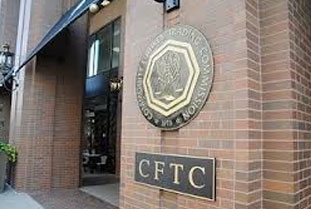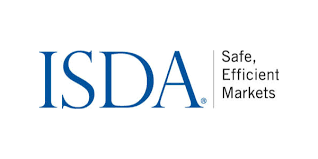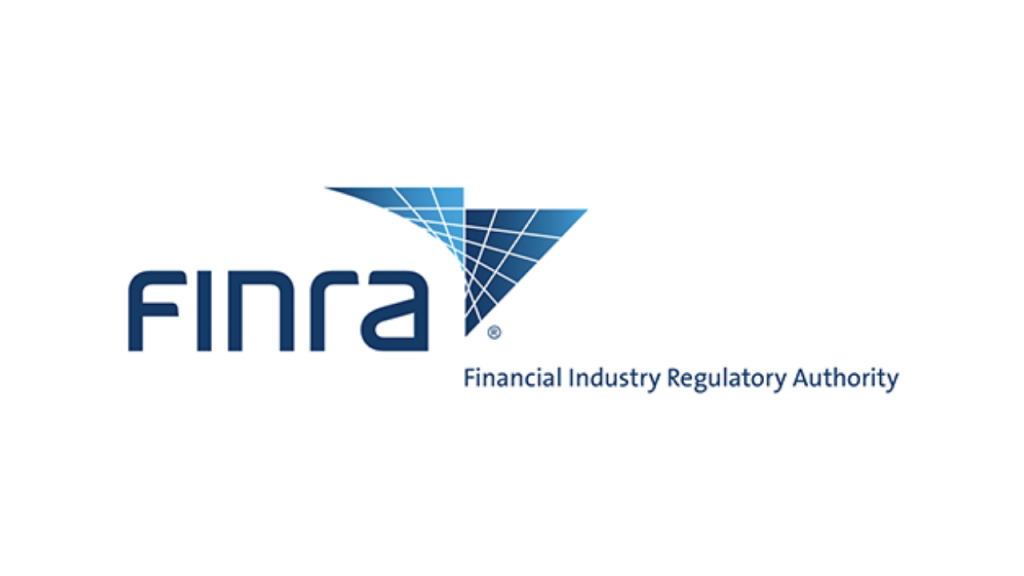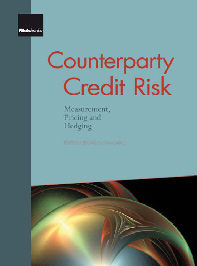On November 7th 2023, the Securities and Exchange Commission (the “SEC”) adopted new rules. Download our PDF to learn more.
PUBLICATIONS / July 25, 2023
SEC Adopts Security-Based Swaps Fraud Prevention Rules
On June 7, 2023, the Securities and Exchange Commission (the “SEC”) adopted two new
rules. Download our PDF to learn more.
PUBLICATIONS / July 27, 2021
CFTC Guidance Regarding Recent Amendment to Regulation 39.13(g)(8)(ii)
Since becoming effective on January 27, 2021, an amendment to US Commodity Futures Trading Commission (“CFTC”) Regulation 39.13(g)(8)(ii), passed in January 2020 (the “2020 Amendment”), 1 has raised concerns among some market participants about futures commission merchants (“FCMs”) coming under commercial pressure to collect less initial margin, leading to heightened overall risk.
PUBLICATIONS / July 24, 2020
The Enforceability of Forum Selection Clauses Against California Residents
There is a potentially important development pending with the Supreme Court of California concerning whether a New York forum selection clause in a contract governed by New York law is enforceable against a California resident when that contract also contains a pre-dispute jury trial waiver, which is prohibited under California law.
PUBLICATIONS / December 13, 2018
ISDA’s Benchmarks Supplement Protocol
On Monday, ISDA launched the ISDA Benchmarks Supplement Protocol. Clients should expect outreach from regulated counterparties in the near future concerning adherence to this protocol. We encourage our clients to review the protocol and to consider their preferred approach to addressing its subject matter.
PUBLICATIONS / October 26, 2018
ISDA Publishes 2018 Credit Support Documentation for Mandatory Initial Margin
As you may have seen, ISDA recently published the ISDA 2018 Credit Support Annex for Initial Margin (IM) (Security Interest – New York Law) and the ISDA 2018 Credit Support Deed for Initial Margin (IM) (Security Interest – English Law).
These new 2018 CSA/CSD forms are intended for use by buy and sell-side firms that will be in scope for mandatory initial margin requirements for non-centrally cleared derivatives beginning in September 2019 (Phase 4) or September 2020 (Phase 5).
PUBLICATIONS / June 3, 2018
T-H ALERT TO BUY SIDE CLIENTS
Planning for Phase 5 Initial Margin Requirements for Uncleared Swaps
Monday, June 3rd, 2019 is the first day in the June, July, August calculation period for determining the average daily aggregate notional amount (AANA) under U.S. uncleared margin rules to assess whether a market participant is in-scope for the Phase 5, September 1, 2020 initial margin compliance date. We encourage clients to begin to calculate their AANA numbers to determine whether any of their trading vehicles exceed the USD 8 billion material swaps exposure threshold across all of their relevant uncleared swaps, security-based swaps, foreign exchange forwards and foreign exchange swaps. We also encourage clients who have not already done so to engage now in dialogue with their regulated counterparties about this process and to review the ISDA published initial margin documentation.
PUBLICATIONS / February 16, 2018
Effective Date of Amended FINRA Rule 4210 is Approaching
An amendment to FINRA Rule 4210, expanding the Rule’s margin requirements, will become effective on June 25, 2018. As a result, broker-dealers will now have to collect variation and initial margin with respect to certain transactions, including “To Be Announced” (“TBA”) transactions, with certain counterparties.
PUBLICATIONS / August 16, 2016
ISDA Publishes Variation Margin Protocol to Address Certain Margin Rules for Uncleared Swaps
Relevant to Article 15 of the EU Securities Financing Transactions Regulation (“SFTR”) Article 15 of the SFTR has been interpreted to require all counterparties, including buy side counterparties outside Europe, to inform their European counterparties of the risks involved in collateral arrangements that permit the reuse of posted securities.
PUBLICATIONS / July 13, 2016
Certain Risk Disclosures Required to be Provided to European Counterparties by Today
PUBLICATIONS / April 19, 2014
Swap Dealers Set to Issue IM Segregation Right Notices in Advance of First CFTC Compliance Deadline
Swap Dealers Set to Issue IM Segregation Right Notices In Advance of First CFTC Compliance Deadline
– ISDA Amend Offers Buy Side Centralized Platform for Making Required Elections
– Prompt Responses Will Help to Avoid Potential Trading Disruptions
PUBLICATIONS / September 9, 2013
ISDA Set to Publish New EMIR Compliance Solution To Address Imminent September 15 Deadline
“Top Up Agreement” Leverages ISDA’s March 2013 Dodd-Frank Protocol
The European Market Infrastructure Regulation (“EMIR”) is the European Union measure that implements the G-20 recommendations for derivatives. It applies generally to the activities of European entities that trade in derivatives, including their trading activities with non-European counterparties.
PUBLICATIONS / May 29, 2013
Questionnaire to the ISDA March 2013 Dodd-Frank Protocol Now Available on ISDA
Earlier this year, ISDA finalized and published the ISDA March 2013 DF Protocol
PUBLICATIONS / May 24, 2013
Order Screening Under CFTC Rule 1.73
In light of the many questions that we have been receiving from clients regarding the operation of CFTC Rule 1.73, we have prepared the attached diagrams to illustrate how the rule applies to give up transactions as well as bunched orders.
PUBLICATIONS / February 27, 2013
Dodd-Frank Update: T-H Recommends Early Adherence to ISDA’s August 2012 Dodd-Frank Protocol to Avoid Possible Delays – Teigland-Hunt LLP Client Alert
Although the deadline to adhere to ISDA’s “Dodd-Frank Protocol I” has effectively been extended to May 1, 2013, T-H recommends that firms planning to adhere submit their protocol adherence letter and exchange questionnaires with dealer counterparties no later than March 31, 2013 to avoid processing delays that could occur as the deadline approaches.
PUBLICATIONS / November 1, 2012
When Worlds Collide: An Overview of New Industry Documentation for Cleared Swaps
Many Seinfeld fans will recall the angst felt by George Costanza when two of his worlds began to collide (in George’s case, his “relationship world” and his “friends world”). Some newcomers to swap clearing may be similarly concerned when they realize that their cleared swaps will not be governed by the familiar, tried and true ISDA master agreement that governs their uncleared swaps; instead they must become comfortable with new industry documentation that has emerged from the collision of the swaps and futures clearing worlds in the United States.2 This article is intended to explain the basis for this new documentation and provide an overview of its architecture and contents.
PUBLICATIONS / August 17, 2012
ISDA Publishes August 2012 DF Protocol to Address Dealer Business Conduct Standards and Other Rules – Teigland-Hunt LLP Client Alert
Earlier this week ISDA published the ISDA August 2012 DF Protocol (the “DF Protocol”), which is now open for adherence.
PUBLICATIONS / July 24, 2012
Eurozone Contingency Planning: ISDA’s Illegality/Force Majeure Protocol – Teigland-Hunt LLP Client Alert
PUBLICATIONS / July 23, 2010
“OTC Derivatives Reform in a Nutshell: U.S. Regulatory Agencies to Play Major Role in Determining Scope and Impact of New Derivatives Regime” – Teigland-Hunt LLP Client Alert
CFTC, SEC to embark on unprecedented rulemaking effort to implement market reforms
PUBLICATIONS / May 21, 2010
Counterparty Credit Risk: Measurement Pricing and Hedging, edited by Eduardo Canabarro
This is the second article in a series about trading of environmental commodities. This article describes practical approaches used in trading documentation to mitigating the definitional risks inherent in OTC trades involving environmental commodities.
PUBLICATIONS / December 1, 2008
Numerous Objections Filed in Response to Lehman Motion on Derivative Contracts – Teigland-Hunt LLP Client Alert
Since the filing by Lehman Brothers Holdings Inc. (LBHI) and certain of its affiliated debtors of a motion to establish procedures for assigning and settling various “Derivative Contracts”, more than 80 parties have filed objections to the motion with the relevant bankruptcy court in New York. The deadline for objections was Friday, November 28, 2008. A hearing on the LBHI motion is scheduled to take place on Wednesday, December 3, 2008 at 10 a.m. (EST). A summary of the objections filed is provided in the attached client alert.
PUBLICATIONS / April 1, 2008
“Oil is a hot commodity” – ISDA 2008, A Yearbook of ISDA Activities
The new ISDA oil annex, which is expected to be published in spring 2008 and will be based on the LEAP agreement’s terms, will allow, for the first time, market participants to capture transactions in physical crude oil and refined oil products delivered via U.S. pipelines under the ISDA Master Agreement.
PUBLICATIONS / March 1, 2008
“India: The Problem with P-Notes” – Futures Industry Magazine
The ban on P-Notes based on futures contracts was particularly troublesome for U.S. investors seeking to invest in Indian equity futures contracts because these instruments represented one of the few ways that U.S. investors could invest in such contracts.
PUBLICATIONS / December 21, 2007
“Role reversal as hedge funds assess their exposure to banks” – Financial Times
Excerpt: In this environment some hedge funds have found they are more exposed to the risk of bank failure because they agreed to trading terms that did not require banks to post collateral against certain derivatives trades, according to Lauren Teigland-Hunt, managing partner at law firm Teigland-Hunt LLP.
PUBLICATIONS / October 1, 2007
“A New Coal Agreement” – Energy Risk
Excerpt: The ISDA Coal Annex allows market participants to combine physical coal trades and coal derivatives under a single trading agreement. Lauren Teigland-Hunt says this developement should improve liquidity in the global coal market.
PUBLICATIONS / November 1, 2006
“Taming Credit Derivatives: Assessing the Private Sector Response to Regulatory Concerns” – MFA Reporter
Excerpt: The private sector initiatives that have been launched in response to issues raised by regulators over the last year are changing the way the credit derivatives markets operate and are giving these markets a vital and timely face lift. Specifically, these undertakings have led to the development of standard procedures for transferring (or “novating”) credit derivative trades in reliance on a “Novation Protocol” published by the International Swaps and Derivatives Association, Inc. (ISDA)
PUBLICATIONS / October 1, 2006
Masters, Annexes and Bridges (Oh My!): A Primer on U.S. Energy Trading Documentation – The University of Texas School of Law – 5th Annual Gas & Power Institute
Excerpt: The growth of the over-the-counter energy markets can be attributed in no small part to the development of standardized documentation for physical energy trading. These documents not only provide market participants with sophisticated tools for documenting and tailoring transactions to their needs but also have led to greater market liquidity by ensuring that products are traded on consistent terms, thereby enhancing fungibility.
PUBLICATIONS / February 23, 2006
“How ISDA Took On the Confirmations Backlog” – International Financial Law Review
Excerpt: Kenneth Raisler and Lauren Teigland-Hunt examine ISDA’s Novation Protocol and its impact on the credit derivatives market… “The Novation Protocol amendments were developed to address the challenges in the processing of novations that were contributing to confirmation backlogs with respect to both credit and interest rate derivative transactions.”
PUBLICATIONS / April 5, 2005
“Bankruptcy Reform Offers Derivatives a Wider Net” – Banking Insider
Excerpt: Allowing traders to cross-product net is also an important part of the proposed law since it has become a common practice in the growing hedge fund industry, says Lauren Teigland-Hunt, managing partner of Teigland-Hunt & Associates in New York and a representative of the Managed Funds Association. “I deal with many people who hedge their forward contracts with a swaps contract, but can’t easily net the entire trade [because of current bankruptcy law],” she says. “A lot of lawyers have spent a lot of hours trying to get around this.”
PUBLICATIONS / June 28, 2004
“Hedge Fund AML on Tap” – Securities Industry News
Excerpt: “There are certain complexities in the business that have to be recognized, and I think Treasury and the other regulators active in this area have tried to craft rules for hedge funds that make sense,” said Lauren Teigland-Hunt, the external counsel for the Managed Fund Association… “Could a hedge fund be used for money laundering? Possibly. But there are impediments associated with that investment vehicle that don’t lend themselves to money laundering, such as lockup periods, which prevent investors from redeeming their interests for an extended period following investment, and limited redemption windows, which mean investors can redeem only once a quarter, for example…”
PUBLICATIONS / February 18, 2004
Market Call Tonight with Howard Green – Report on Business Television
Televised interview with Lauren Teigland-Hunt, external counsel to Managed Funds Association, regarding SEC proposal to hire additional examiners to inspect hedge funds











